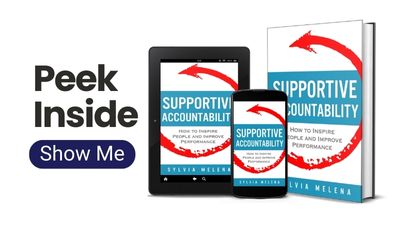What defines you?
Personality is a rich mosaic that captures the essence of who we are.
This intricate blend of traits, behaviors, and perceptions shape our understanding of the world and our place in it.
In this article, we explore what the personality is, how it develops, and how it can be measured.
Before we dive in, please keep in mind that personality is only one aspect of who we are. Our values, beliefs, mindset, maturity, and much more form our character.
What is the Personality?
Researchers take a multi-faceted approach in exploring the human personality. There are also many perspectives that influence how personality is defined. We’re going to use the simple definition published by the Mayo Clinic.
Personality is “a complex combination of different traits… (that)… affect how people understand and relate to the world around them, as well as how they see themselves.”
The Mayo Clinic1
Personality Development: Nature v. Nurture
Personality development is influenced by both nature and nurture (genetics and environmental factors).
People inherit some personality traits from their parents, yet these predispositions are also shaped through the environment, parental upbringing, lived experience, modeled behavior, and much more.2
Trauma and other adverse experiences can have a tremendous impact on personality development.
How is the Personality Measured?
Researchers use two key methods to measure the personality: using observations and administering measurement instruments, such as the DISC assessment.
DISC is widely used in industry and has been administered to over 50 million people, with over 81% of employees indicating that it accurately depicts their behavioral tendencies.3
The DISC assessment is a research-validated instrument that measures people’s needs-motivated behaviors and emotions. However, it doesn’t measure intelligence, skills, education, experience, or values,4 which can significantly impact the behavior people display.
It’s important to keep this in mind as we leverage DISC, so that we don’t unintentionally label or pigeonhole people.
Will the Personality Change Over Time?
It depends.
Personality is complex, comprised of various elements and affected by various factors. Some parts of our personality are fairly stable, while others can change over time.
The Big Five Personality Traits
The “Big Five Personality Traits” are like the core parts of a person’s natural make-up and usually don’t tend to change as we age and mature. These are our natural tendencies and inclinations shaped by genetics and tend to remain fairly stable throughout our lifespan.5
In an upcoming article, I will cover the Big Five and how they correlate to the four DISC styles.
Psychological Capital
Psychological capital is “positive psychological force that can motivate positive attitudes and behaviors, promote physical and mental growth, academic and employment development, and enhance one’s competitive advantage.
Anqi Hu, Xueyan Li, and Hongfeng Song6
Psychological capital is not set in stone. It’s a skill we can develop and improve over time and is, therefore, changeable.
People with high psychological capital have enough internal resources to “clearly position and maximize the strengths of their personality traits.”7
A high level of psychological capital can help us manage our emotions and behaviors, even in challenging situations. The more internal resources we have, the better we can take on challenges and achieve optimal outcomes and performance.
Psychological capital is marked by four essential components:
- Self-Efficacy: Feeling confident in our ability to perform and achieve our goals, dreams, and aspirations. It’s believing in ourselves.
- Opitmism: Expecting positive future outcomes. It’s having a positive outlook on life, viewing problems as temporary, seeing hardship as ultimately beneficial, and knowing success will come.
- Hope: Having dreams and goals and demonstrating the determination and drive to achieve them, even in the face of challenges. It’s a visible persistence and willingness to be flexible.
- Resilience: The ability to bounce back from tough times and come out stronger. It’s using challenges and hardships as a tool for growth, maturity, and success.8
While personality is a part of our identity, it’s not the sole defining factor. Our education, values, beliefs, maturity, and other factors shape the way we view and interact with the world around us.
We can intentionally develop our outward response to challenges and emerge much stronger when adversity strikes.

SYLVIA MELENA is the Principal of Melena Consulting Group, a leadership and organizational development consulting firm. She is also the two-time international award-winning and best-selling leadership author of Supportive Accountability: How to Inspire People and Improve Performance and its Spanish translation, Responsabilidad solidaria: Cómo mejorar el rendimiento laboral por medio del apoyo.
REFERENCES 1 “Personality Disorders.” Mayo Clinic, December 13, 2022. https://www.mayoclinic.org/diseases-conditions/personality-disorders/symptoms-causes/syc-20354463. Date accessed: August 12, 2023. 2 “Personality Disorders.” Mayo Clinic. 3 Cathleen S. Jones, and Nell T. Hartley. “Comparing Correlations between Four-Quadrant and Five-Factor Personality Assessments.” American Journal of Business Education (AJBE) 6, no. 4 (July 15, 2013): 459–70. https://doi.org/10.19030/ajbe.v6i4.7945. Creative Commons License: https://creativecommons.org/licenses/by/3.0/. Date accessed: August 12, 2023. 4 Melena, Sylvia. “The Four Disc Styles of Leadership Communication.” The Leadership Strength Group (Melena Consulting Group), December 2020. https://leadershipstrength.com/2020/12/the-four-disc-styles-of-leadership-communication/. Date accessed: August 12, 2023. 5 Kramer, Robin S., and Samuel D. Gosling. “What Is Personality?” Frontiers for Young Minds 10, no. 719561 (August 14, 2022). https://doi.org/10.3389/frym.2022.719561. Date accessed: August 14, 2023. Creative Commons License: https://creativecommons.org/licenses/by/4.0/. 6 Hu, Anqi, Xueyan Li, and Hongfeng Song. “The Influence of Big Five Personality Traits on College Students’ Key Competencies: The Mediating Effect of Psychological Capital.” Frontiers in Psychology 14, no. 1242557 (August 4, 2023): 1–15. https://doi.org/10.3389/fpsyg.2023.1242557. Date accessed: August 12, 2023. Creative Commons License: https://creativecommons.org/licenses/by/4.0/. 7 Anqi Hu, Xueyan Li, and Hongfeng Song. “The Influence of Big Five,” 1–15. 8 Anqi Hu, Xueyan Li, and Hongfeng Song. “The Influence of Big Five,” 1–15.






